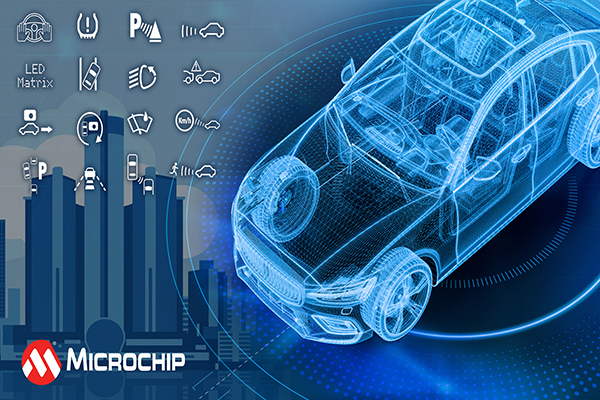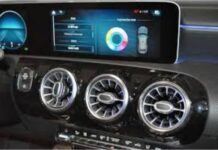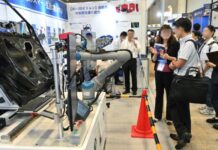Microchip Technology announces the expansion of its Detroit Automotive Technology Center in Novi, Michigan. The 24,000-square-foot facility is the destination for automotive clients to explore new technologies and to meet with technical experts to get support for their end applications and designs.
Microchip has been part of the Detroit community since 1999, when it first opened its doors as an application and sales office. With the recent completion of phase three of its expansion project, Microchip has more than doubled its lab space, including the addition of new labs that focus on high-voltage and E-Mobility applications. This larger facility will also bring more technology-related jobs to the region.
“Microchip’s automotive business is a cornerstone of our company’s legacy. We remain focused on developing total system solutions, and this expansion provides our customers with immediate access to state-of-the-art resources,” said Rich Simoncic, executive vice president of Microchip. “In addition to the Detroit location, we have Automotive Technology Centers in Munich, Shanghai, Tokyo and Austin, Texas, to support our global customer base.”
“Microchip’s Automotive Technology Center demonstrates our commitment to the automotive industry by providing a destination for them to develop, test and refine applications in the design phase,” said Matthias Kaestner, corporate vice president of Microchip’s automotive business. “Our vision for the center is to provide our automotive customers with the confidence to choose the right solutions for their designs and by helping them to cut design effort and time to market by providing world class technical support locally.
Located in the heart of the automotive industry, and with top tier OEMs, suppliers and startups operating in the region, Novi is a key location for Microchip’s Detroit Automotive Technology Center and easily accessible to help OEMs with their design challenges.
The key capabilities of the Detroit Automotive Technology Center include:
- Dedicated high-voltage lab for demonstrations of reference designs featuring Microchip’s silicon carbide mSiC solutions, dsPIC Digital Signal Controllers (DSCs) and our wide breadth of analog and mixed-signal solutions
- Support for central compute and zonal networks in ADAS platforms using Microchip’s PCIe Gen 4 and Gen 5 switching hardware, single-pair Ethernet devices and development tools
- Human Machine Interface (HMI) lab to support the development of full-width cockpit displays; touchscreens; Knob-on-Display (KoD) solutions; and buttons, sliders, and wheels with EMC testing
- USB and networking development resources for pre-certification of multimedia infotainment systems and media hubs for advanced USB Type-C 3.2 protocol applications
- Die- and product-level characterization of automotive MEMS resonators and oscillators, including vacuum and wafer-scale probe and test, long-term aging, frequency stability, phase noise and jitter test capability
- Development of automotive security solutions using Microchip’s CryptoAutomotive TrustAnchor ICs, and onsite security training to learn how to implement secure elements in applications such as secure boot, message and hardware authentication and more
“The new high-voltage lab will help our automotive customers develop systems using our reference design platforms and analog, digital control and power solutions,” said Clayton Pillion, vice president of Microchip’s silicon carbide business unit. “As more OEMs transition to our E-Mobility offerings, we are ready to support them from the design phase to implementation.”
As a leading supplier of embedded solutions to global automotive OEMs, Microchip offers many automotive products that are qualified in accordance with AEC-Q100 requirements. Its automotive-qualified product portfolio includes microcontrollers, DSCs, USB and networking solutions, analog and interface products, SiC MOSFETs, serial EEPROMs and more.
Microchip also offers a broad portfolio of ISO 26262 functional safety ready and functional safety compliant devices that offer the latest hardware safety features and are supported by a comprehensive safety ecosystem to simplify the design and certification of safety-critical automotive applications.

















